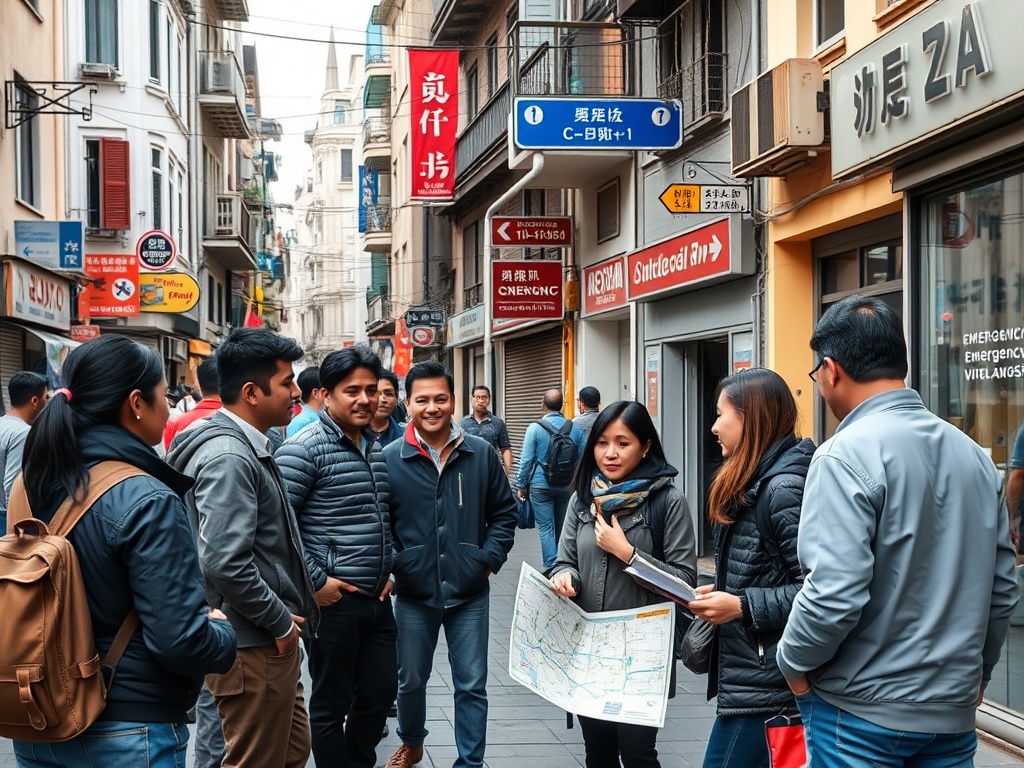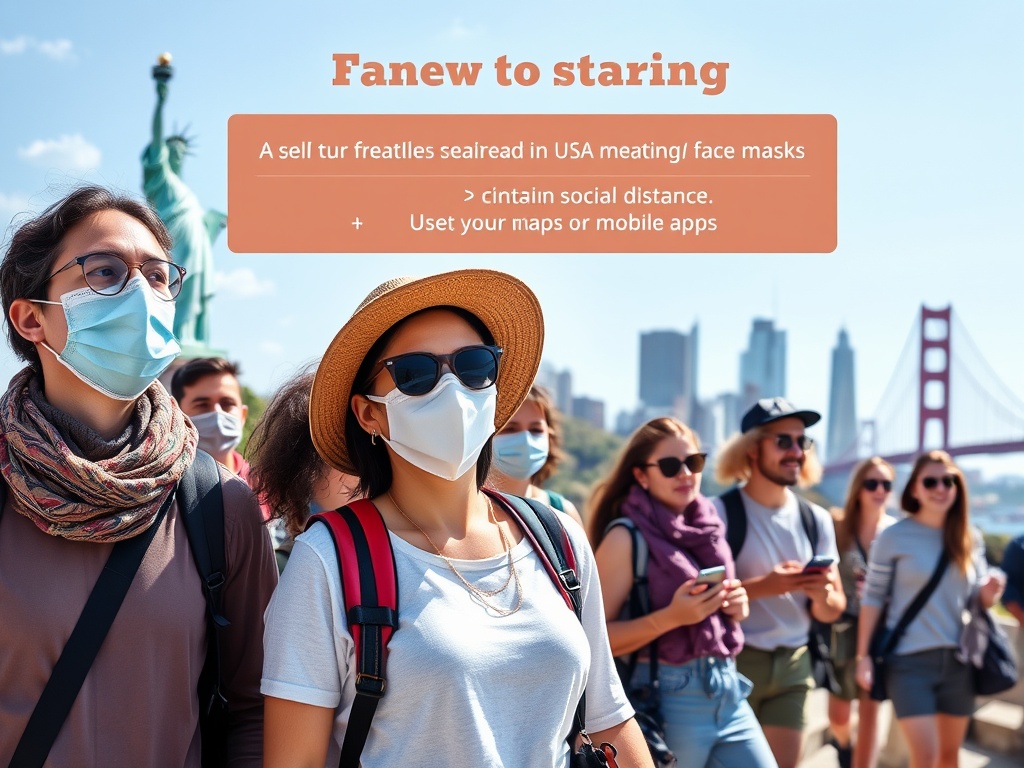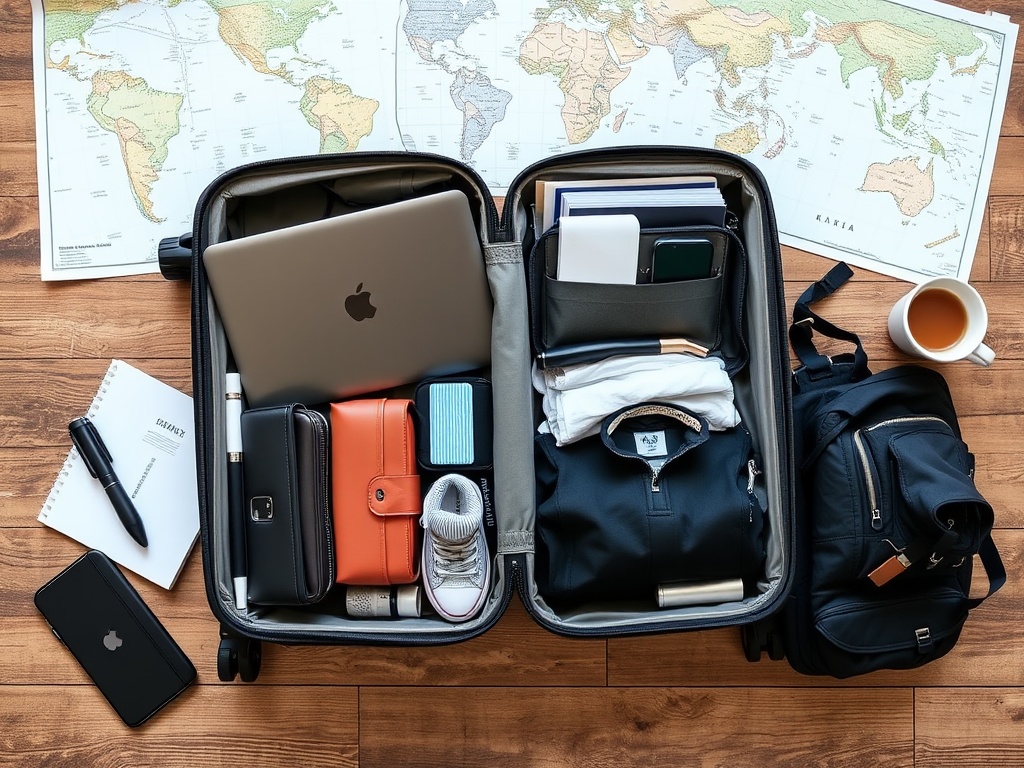Navigating Cultural Differences: Understanding Emergency Protocols Abroad
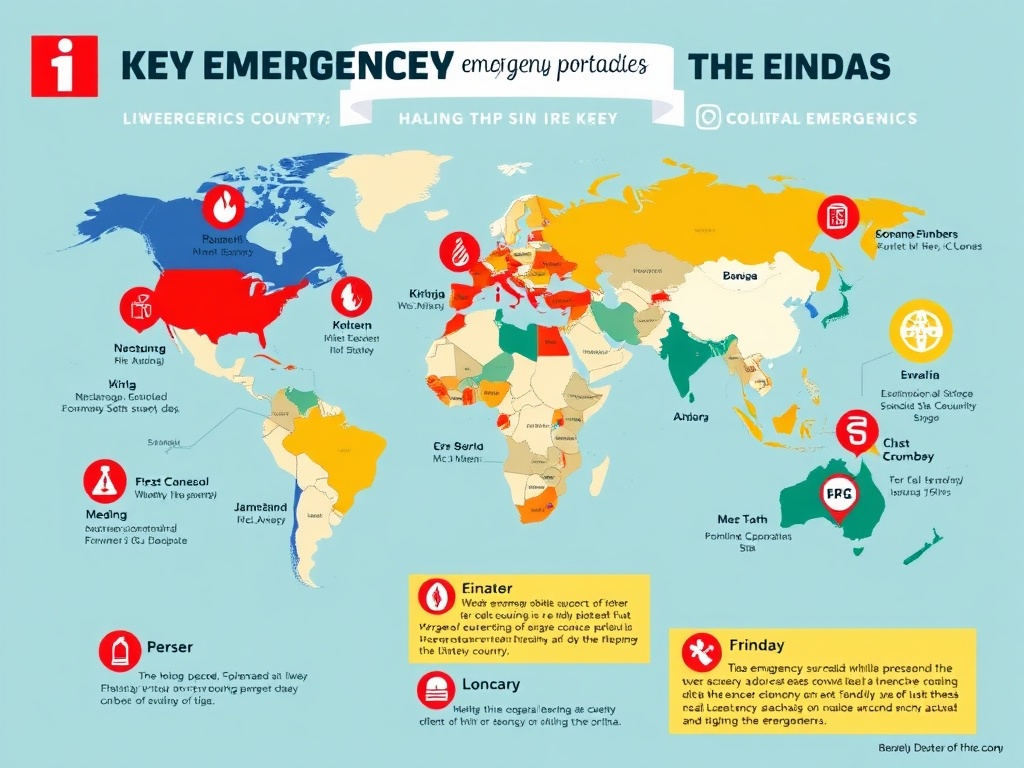
Understanding Local Emergency Services
When living in a foreign country, it’s crucial to familiarize yourself with the local emergency services. Each country has its own system and numbers for emergency response, which may differ significantly from what you’re used to. Knowing these details can save valuable time in a crisis.
For example, in the United States, calling 911 connects you to police, fire, and medical services. However, in the UK, the emergency number is 999. It is essential to research and memorize the local equivalents before any emergency arises.
- Research local emergency numbers.
- Understand how to access services like ambulance, police, and fire departments.
- Know any language barriers that may exist during the communication process.
Recognizing Cultural Attitudes Toward Emergencies
Cultural attitudes toward emergencies can vary widely, influencing how situations are handled. Some cultures may prioritize community involvement, while others may place greater emphasis on individual responsibility. Understanding these nuances can help you navigate emergencies more efficiently.
For instance, in collectivist societies, locals might expect community members to assist during emergencies, while in more individualistic cultures, seeking professional help might be the norm. Being aware of these differences can help you respond appropriately and communicate effectively with locals.
Steps to Prepare for Emergencies
Preparation is key when living abroad. Having a plan can mitigate the stress of an emergency situation. Below is a list of essential steps to consider:
- Familiarize yourself with the local healthcare system.
- Keep a list of important contacts, including your country’s embassy.
- Learn basic phrases in the local language related to emergencies.
- Engage with local communities to understand their emergency protocols.
- Have a personal emergency kit ready, including necessary documents, medications, and contact information.
Essential Emergency Contacts: Building Your Safety Network
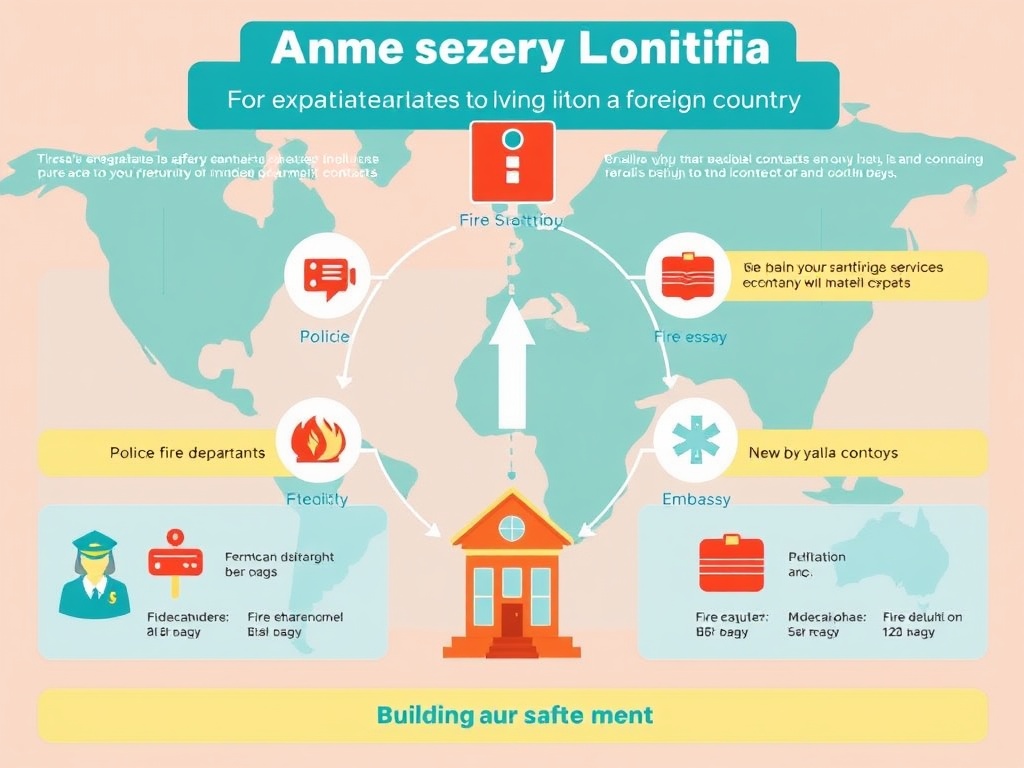
Establishing a robust network of emergency contacts is vital when residing in a foreign country. This network not only includes local emergency services but also extends to personal contacts who can assist you in a crisis. Creating a comprehensive safety network enhances your ability to respond effectively during emergencies and provides peace of mind.
Connecting with Local Resources
Local resources, such as hospitals, police stations, and embassies, should be at the forefront of your emergency contact list. Knowing how to reach these services in a timely manner can make all the difference. For instance, if you encounter a medical emergency, being familiar with the nearest hospital and their contact number can expedite the process of receiving care. Additionally, having the contact information for your home country’s embassy is critical, as they can provide support in various situations, including legal issues or natural disasters.
Building a Personal Support Network
Your personal support network should consist of friends, colleagues, and acquaintances who can provide assistance during emergencies. Establishing relationships with locals can be particularly beneficial, as they may have firsthand knowledge of the best emergency practices in the area. Engaging in community activities or local groups can help you connect with individuals who are willing to lend a hand in times of need. It’s also wise to exchange contact information with fellow expatriates, as they may face similar challenges and can offer support based on shared experiences.
Creating a Comprehensive Contact List
Once you identify essential contacts, compile a comprehensive emergency contact list. This list should be easily accessible and include names, phone numbers, and addresses of local emergency services, your embassy, and personal contacts. To ensure that language barriers do not hinder communication during emergencies, consider translating key phrases or having a bilingual friend review your list. Having a printed copy in your wallet or readily available on your mobile device can be immensely helpful. In addition to your contact list, consider creating a simple table that categorizes your contacts based on urgency and type of assistance they can provide, such as medical help, legal advice, or personal support.
| Contact Type | Name | Phone Number | Address |
|---|---|---|---|
| Emergency Services | Local Police | 123-456-7890 | Main St. 123 |
| Embassy | US Embassy | 098-765-4321 | Embassy Ave. 456 |
| Medical | City Hospital | 234-567-8901 | Health Rd. 789 |
Preparation is Key: Creating a Comprehensive Emergency Plan
Understanding the Importance of an Emergency Plan
Living in a foreign country is an exciting adventure, but it also comes with its own set of challenges—particularly when it comes to emergencies. Creating a comprehensive emergency plan is not just a good idea; it is essential for ensuring your safety and well-being. By taking the time to develop a thoughtful plan, you can significantly reduce the stress and confusion that often accompany unforeseen situations. A well-structured emergency plan acts as a roadmap, guiding you through various scenarios, from medical emergencies to natural disasters.
Mapping Out Potential Scenarios and Responses
When crafting your emergency plan, it is crucial to consider various scenarios that could occur in your host country. For instance, if you live in an area prone to natural disasters such as earthquakes or floods, ensure that your plan includes specific steps to take in those situations. Likewise, if you are in a region with a unique health risk, such as tropical diseases, your plan should outline how to access medical care promptly. Being proactive in identifying potential risks allows you to tailor your emergency plan effectively. Always assess your surroundings and keep local emergency numbers handy to facilitate quick responses.
Regular Review and Practice: Keeping Your Plan Fresh
Creating an emergency plan is just the beginning; the key to its effectiveness lies in regular review and practice. Make it a habit to revisit your plan at least once a year or after any significant change in your circumstances, such as moving to a new area or changes in local laws. Additionally, consider conducting emergency drills with friends or family members who are part of your support network. Practicing your responses can drastically improve your confidence and efficiency in real-life situations. Remember, the more familiar you are with your emergency plan, the more prepared you will be when it truly counts.
Facing Natural Disasters: Strategies for Safety in Foreign Lands
Living abroad can be an exhilarating experience filled with new cultures and adventures, but it also presents unique challenges, especially when it comes to natural disasters. Understanding how to respond effectively during such events is critical for ensuring your safety and the safety of those around you. This guide offers valuable insights into preparing for and responding to natural disasters while living in a foreign country.
Understanding Local Risks and Disaster Preparedness Measures
One of the first steps in ensuring your safety is to become familiar with the natural disaster risks specific to your host country. Whether it’s hurricanes in the Caribbean, earthquakes in Japan, or flooding in Southeast Asia, each region has its own set of challenges. Conducting thorough research about these risks allows you to not only prepare yourself but also to understand the local emergency protocols in place. Many countries have established disaster preparedness measures that are tailored to their unique vulnerabilities. For instance, in countries prone to earthquakes, building codes may be designed to minimize damage, and communities often conduct regular drills. Knowing these details will empower you in times of crisis, as you can align your personal emergency plan with local practices.
Creating a Personalized Emergency Response Plan
Preparation is key when facing potential natural disasters. Develop a personalized emergency response plan that takes into account your specific circumstances, such as your location, available resources, and the types of natural disasters most likely to occur. This plan should include clear escape routes, designated meeting points, and a communication strategy for contacting friends and family. It’s also wise to assemble an emergency kit that contains essentials such as water, non-perishable food, first aid supplies, and important documents. Regularly reviewing and practicing your plan will boost your confidence and ensure that you and your loved ones are ready to act swiftly when the need arises.
In addition, connecting with local community organizations that focus on disaster preparedness can provide you with further insights and support. Many neighborhoods have established networks that offer assistance during crises, and engaging with these groups can enhance your understanding of local resources and response strategies.
Medical Emergencies Unplugged: Finding Healthcare Resources in a Foreign Country
Living abroad can introduce a variety of thrilling experiences, but it also brings the reality of potential medical emergencies. Navigating healthcare in a foreign country can be daunting, especially if you are unfamiliar with the system. Understanding where to find reliable healthcare resources is crucial to ensure your health and safety during your stay. Here, we will delve into the essentials of accessing medical care while living in a different country, providing you with the knowledge needed to tackle medical emergencies effectively.
Decoding the Local Healthcare System
Each country has its unique healthcare system, which can vary significantly from what you may be accustomed to back home. Before a medical emergency strikes, it is beneficial to familiarize yourself with how the system operates. Start by researching the following:
- Local Healthcare Facilities: Identify the nearest hospitals, clinics, and pharmacies. Know their operating hours and the types of services they provide.
- Health Insurance Requirements: Understand the health insurance options available to expatriates and ensure you have adequate coverage that includes emergency care.
- Language Support: In case of medical emergencies, being aware of local language capabilities can facilitate smoother communication. Consider having essential medical phrases translated in advance.
Creating a Personal Health Resource Guide
Having a personal health resource guide can serve as a lifeline during medical emergencies. This guide should include vital information that can be accessed quickly. Here are some critical components to include:
- Emergency Contact List: Compile a list of local emergency numbers, including ambulance services, poison control, and your embassy’s contact details.
- Medical History: Document any pre-existing conditions, allergies, and medications you are currently taking. This information can be invaluable to healthcare providers during emergencies.
- Local Health Apps: Download any relevant health apps that can assist in locating services, translating medical terminology, or even booking appointments.
By preparing a comprehensive health resource guide, you equip yourself with essential information that can help mitigate panic during a crisis, allowing you to focus on receiving the necessary care.
Legal Preparedness: Knowing Your Rights and Responsibilities in Emergencies
Understanding Your Legal Rights During Emergencies
When living in a foreign country, it is essential to grasp the legal landscape surrounding emergency situations. Each nation has its own set of laws that dictate how emergencies are handled, and being informed can significantly impact your response during crises. For instance, some countries may have laws that require you to report emergencies to authorities immediately, while others might allow you to take more personal initiative before involving the police or medical services. Understanding these legal expectations is crucial, as it can help you avoid any potential legal ramifications.
Moreover, knowing your rights as a foreign resident can empower you to act decisively when faced with emergencies. This includes understanding your right to access emergency services without fear of discrimination or legal repercussions, as well as your rights to seek assistance from your home country’s embassy. Familiarizing yourself with local laws regarding emergency situations will not only enhance your safety but also help you navigate the legal complexities that may arise.
Responsibilities You Must Uphold in Emergency Situations
While understanding your rights is important, it is equally crucial to recognize your responsibilities. When emergencies occur, individuals often have a duty to assist others if it is safe to do so. In many jurisdictions, there are Good Samaritan laws that protect individuals from legal liability when they voluntarily provide assistance in emergencies. However, these laws vary greatly from country to country. Therefore, it is imperative to research and comprehend what is expected of you during such situations.
Additionally, you should be aware of any specific regulations regarding reporting emergencies. For example, in some nations, failing to report a crime or medical emergency could lead to legal consequences. Understanding these responsibilities can prepare you to act appropriately, ensuring that you not only protect yourself but also contribute positively to the safety of those around you. By being informed and proactive, you can navigate the complexities of legal preparedness effectively.
Establishing Connections with Legal Resources
Accessing legal resources is a vital step in ensuring your preparedness for emergencies. Establishing a relationship with a local legal advisor or joining expat groups can provide valuable insights into your rights and responsibilities. These connections can offer guidance on how to handle various situations, from medical emergencies to legal disputes you might encounter.
Moreover, having contact information for local attorneys who specialize in expatriate law can be invaluable. In addition, consider creating a legal preparedness document that outlines your rights, the obligations you must fulfill, and a list of legal contacts. This proactive approach will not only equip you with essential knowledge but also foster confidence in handling emergencies effectively.
Crisis Communication: Effectively Reaching Out for Help When It Matters Most
In the face of emergencies, effective communication can mean the difference between chaos and resolution. When living abroad, the ability to reach out for help promptly and clearly is essential, especially when language barriers and unfamiliar systems complicate the situation. Knowing how to communicate your needs is not just about speaking the local language; it also involves understanding the cultural context of the message you wish to convey. This section will delve into the strategies for crisis communication that can help you navigate emergencies smoothly.
Mastering the Art of Clear Communication
When an emergency arises, clarity is your best ally. Begin by preparing essential phrases in the local language that relate specifically to emergencies. This might include terms for medical assistance, police intervention, or fire services. Having these phrases ready can expedite the process and help you articulate your situation with ease. Moreover, it’s beneficial to practice pronunciation and context usage so that your message is understood without ambiguity.
Additionally, utilize non-verbal communication as a tool. In situations where words might fail, gestures, facial expressions, and body language can convey urgency. For instance, pointing to an injury or using hand signals can complement your verbal requests and help others understand your needs more effectively.
Utilizing Technology for Immediate Assistance
In our tech-savvy world, smartphones can be a lifesaver during emergencies. Downloading local emergency apps can provide instant access to services and resources. Many apps are designed to offer real-time updates during crises, such as natural disasters. Furthermore, social media platforms can serve as powerful tools for communication. Posting on local community groups or sending out alerts can quickly expand your network for help.
Moreover, consider using translation apps. During emergencies, the pressure to communicate can be overwhelming, and translation apps can assist in bridging language gaps. Having these resources at your fingertips can enhance your ability to reach out for help, ensuring that the right assistance arrives promptly.
Building Relationships for Better Access
Establishing a connection with locals can significantly improve your ability to communicate during emergencies. Engaging with your community not only helps you learn the language but also introduces you to local customs and communication styles, which can be crucial when seeking assistance. Participating in community events or joining expat groups can foster friendships that may prove invaluable in a crisis. When you have a trusted local contact, you can turn to them for support, guidance, or even translation during emergencies.
In summary, mastering effective crisis communication while living in a foreign country involves a blend of preparedness, technology, and relationship-building. By equipping yourself with the right tools and knowledge, you can navigate emergencies with confidence, enhancing your safety and well-being in an unfamiliar environment.
